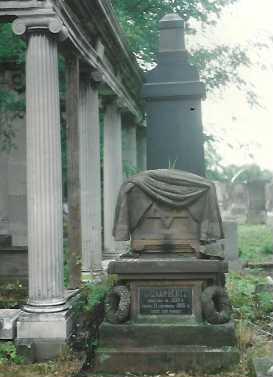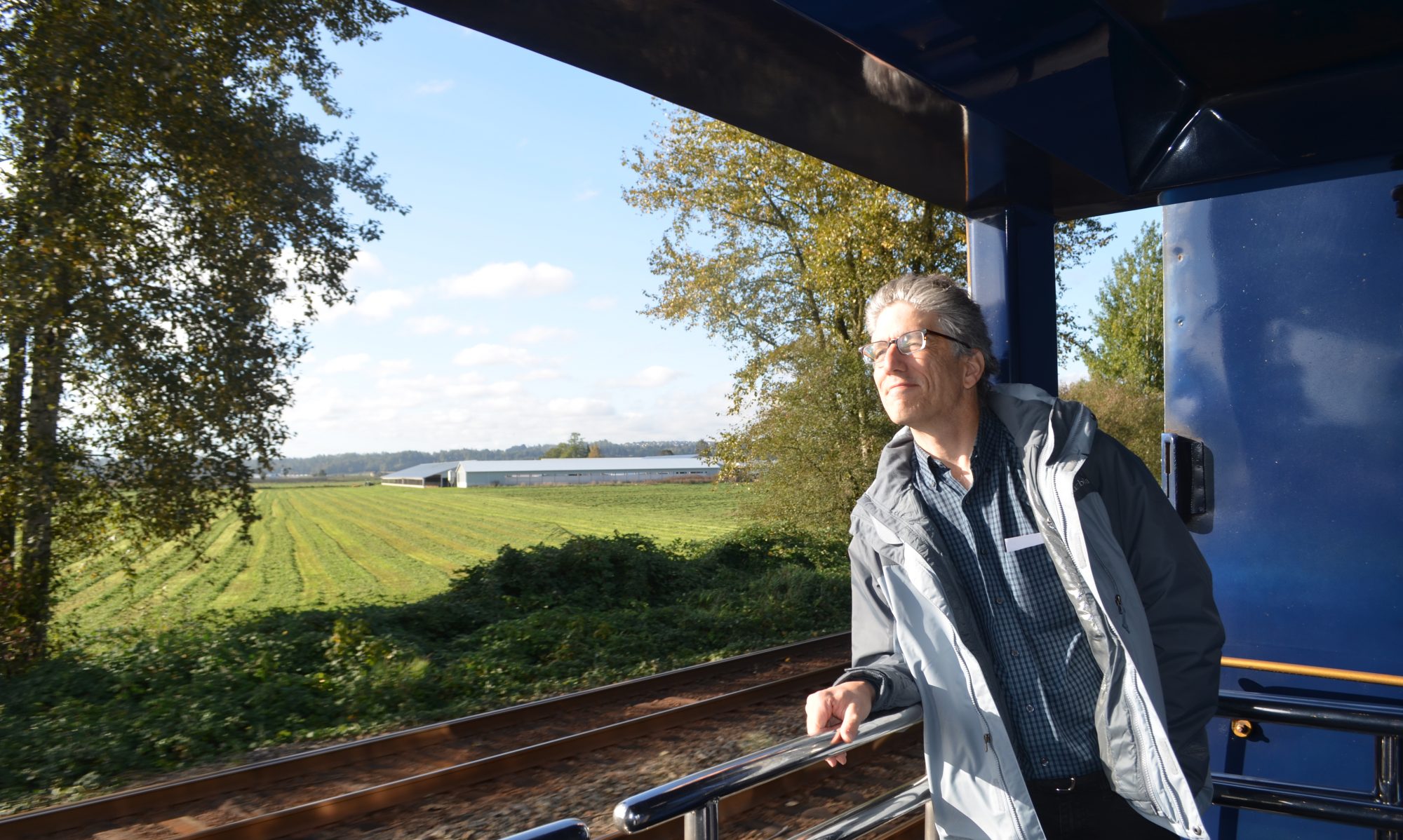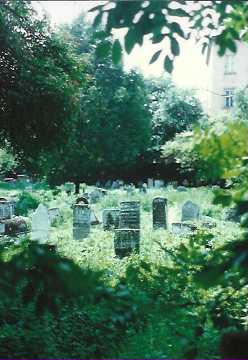I’m So Vain I Really Think This Song is About Me…”
“I’m too sexy for my shirt,
Too sexy for my shirt,
Too sexy…”
–“Too Sexy” by Right Said Fred
Having survived the flu in Saigon, sickness on Sumatra and ice-axing atop Franz Josef, I not only knew I was up for any challenge, I was sure I was hot stuff. Lodz quickly disabused me of this notion.
My lessons in humility started just outside Gdansk.
Although Eastern European train tickets aren’t easy to read or understand, I was pretty sure I had mastered the art of comprehending them until I boarded the first of two trains on my trip to Lodz and repeatedly ran afoul of a conductor who chased me from car-to-car for no apparent reason. No matter where I sat, it wasn’t good enough. Each time he looked at my ticket he shooed me away, but never said why. He would just hold up a few fingers and point toward the back of the car, so I’d go back two cars, sit and settle in before he came along and chased me off again.
By the third time he seemed to be pursuing me for the hell of it. I took to wearing a hat, changing shirts or hiding my face in a book to elude him, but he caught me every time and yelled louder each time before he sent me along my way. I was so puzzled that I was getting the impression he knew about all the Polish jokes I’d told and made it his mission to exact some revenge or that I had become part of a punchline in a cosmic Dumb American joke.
I can just see the exchange now:
Hey, Pavel, how many Dumb Americans does it take to change a light bulb?
I don’t know, how many Dumb Americans does it take?
“You’ll never believe it,” his friend says, doubled over, so convulsed with laughter he can barely get the answer out. Each time he tries tears roll down his face until he finally manages to answer between fits.
“One,” he says.
Then he slaps his knee and both laugh hysterically.
How the hell was I supposed to know that each of the places where I sat were in cars that would split off from the rest of the train at Warsaw? It’s not like the guy told me why he was shooing me along or where he wanted me to go.
Have I mentioned that Poland is one of the few countries I visited where most people don’t speak English?

I felt even dumber the next day when I went looking for the old Jewish cemetery in
Lodz and couldn’t find the entrance. The reason is simple, really. The city’s tiny Jewish community kept it locked so vandals couldn’t get in, so the only way in was over a six-foot tall brick wall, which, ironically, is the way most vandals get in. I debated scaling the wall, but gave up because I thought it was too tall for me to climb. Just then a 65 year-old man in the passenger’s seat of a car asked if I’d seen the main entrance. When I told him I thought it was where he’d come from, he got out and scaled the wall. His son and daughter, also older than me, quickly followed. Not wanting to be outdone by a senior citizen I, too, scaled the wall. Not being as graceful or as limber as they were, I nearly ended up landing on my head rather than my feet as I got tangled up in the fence and a tree on my way down.
As we wandered through the cemetery he told me he was born in Lodz, lived in the city’s ghetto at age 12 and survived the hell that was Auschwitz before moving to Israel. He was visiting the city for the first time in years and was on his first visit with his children.
If it’s possible, seeing the size of the graveyard made me feel more foolish because of the enormity of the task before me. Before jumping the fence I thought there was a remote chance I might stumble across a grave belonging to a Wolkowitz. Once I saw the size of the graveyard, I realized I d need more than luck to find the stone, I’d need a fucking miracle because the Lodz cemetery was the first truly old, truly large Jewish cemetery I had seen that wasn’t part of a larger graveyard for people of all faiths. Sadly, it had suffered for its isolation. It’s overgrown with weeds and grass, and many of the stones had fallen, been vandalized or stolen and the city’s Jewish community lacks the money to do anything about it.
The situation is quite sad, really, because it means that people like me who don’t know where their relatives are buried won’t have a fighting chance. Sure, there might be a map of the cemetery if it wasn’t among the numerous records the Nazis destroyed. The information wouldn’t have meant much anyway because it was impossible to tell which section of the cemetery was which without the section markers that had been taken by vandals.
The only consolation was that the facility’s slow decline made for a pretty picture: old blackened headstones standing like sentries peering out over the large stalks of weeds engulfing them. It was like a scene you might see off the side of a rural country road in the Midwest in summer as you look out your car window and see prairie grass blowing back and forth, only headstones were blossoming from the soil where you’d expect prairie flowers. Closer to the front, the stones were larger, better tended and pricier. Some of the memorials and mausoleums were awe-inspiringly large. In fact, a round structure for the Poznanski family was larger than a synagogue chapel where I’d attended a wedding the previous year.
Like the Israeli family, I wandered the cemetery noticing interesting markers, ignoring others, occasionally pausing to take photos. Unlike them, I didn’t find the grave I wanted because I didn’t know where to look. All I knew was that my paternal grandfather was a poor tailor in Pittsburgh, so I reasoned his relatives were also poor and unable to afford ornate markers. I knew I would have to search near where I entered the cemetery, but the hundreds of small, poorly kept plots with overturned markers made the task so daunting that I quickly gave up.
We were all successful in finding the Ghetofeld (Ghetto Fields), however. This area of the cemetery contains stones but no bodies because the families of victims purchased these memorials to loved ones who died in the ghetto and at Auschwitz. There were additional memorial plaques on the walls of the cemetery gates. The plaque that grabbed my attention was on one of the entrances to the cemetery with the name KLEINLEHRER NAJMAN on it. After three lines in Polish, it goes on to say:

“THIS PLAGUE WAS LAID
ON 7 OKTOBER 1980 IN
MEMORY OF ALL
KLEINLEHRER
AND NAJMAN
WHO WERE KILLED
BY THE GERMAN BEAST
IN THE HLOCAUST
FROM 1939 — 1945
A. KLEINLEHRER
FROM. SYDNEY AUSTRALIA
I don’t mean to make light of anyone’s suffering because their suffering is my suffering, but geeze, tell us how you really feel, why don’t you? And what is the deal with that awful spelling? Last time I checked, Australia was part of the English-speaking world, so I’m still wondering how someone from Sydney would lay a “plague” in “Oktober” to honor victims of the “Hlocaust.” It made me wonder if there might be other misspellings on the “plague.” For all I know, these people could have been killed by the German “breast.”

Once I left the cemetery and nosed around the city it didn’t take long to figure out why Lodz wasn’t in my guidebook. It really isn’t a tourist town. From what I saw, most of Lodz is a beat-up, old industrial city where textile mills were once the biggest industry.
The only exception was a street that was once an old Jewish neighborhood but is now the city’s main shopping district. From the second floor on up of each building it was easy to tell that the buildings were quite old, but the first floor level of each building had been refurbished so extensively that it not only made it difficult for me to imagine I was in the middle of an old Jewish neighborhood, it was also distracting.
I wanted to wander the streets to get in touch with the souls of lost relatives I will never know, and instead I found myself looking for lunch in all the wrong places. Try as I might, I didn’t feel any emotion, even in the ghetto. No connection with relatives, the city or the souls lost. Perhaps I was too tired, not old enough, not focused enough or, perhaps, as Ray Stevens said in a Barry Manilow parody album, “The Feeling’s Not Right Again.”
Frustrated, hungry, and tired, I had dinner at a cafe frequented by Lodzers or whatever they’re called and returned to a hostel so empty that the only people staying there were three teenage girls in town for eye surgery. We spent a delightful evening chatting and learning how to say “Fuck,” “shit” and “whore” in Polish. I recorded the lesson on a tape recorder I purchased in Gdansk.
It was the most fun I’d had in days.
Not wanting to look completely stupid, I made sure I was prepared for my visit to the train station ticket booth. I even memorized what I needed to say so I’d look like a seasoned traveler who’d made an effort to learn the language before visiting the country.
In fact, I was excited about buying a ticket to Warsaw because it was my chance to swagger up to the counter and coolly and confidently say, “Bilet do Warszawa (pronounced “Bill it do War shav a”)?”
To which the clerk responded, “Zyxzvy Dzwyck?”
I don’t know if I’ve mentioned this, but there aren’t many vowels in Poland, which is a crime. The International Monetary Fund has been sending thousands of dollars in aid to this country to help it dig its way out of poverty when the entire effort has been misdirected. All they really need are some vowels so foreigners will be able to read the language and do business there.
Mustering what little reserve of cool I had remaining, there was only one thing I could say in response:
“Huh?”
Notice the way I sounded so masterful and smart there?
So she repeated herself.
Since all hope of looking cool was gone, I asked, “Do you speak English?”(read: “I’m stupid.”)
Of course, she said no.
This was not going to be as easy as it looked.
I went to my phrase book, took out a sheet of paper and wrote that I wanted to buy a second class ticket to Warsaw and asked how much it would cost and when it would leave. The negotiation became a bit complicated because it turned out there was an earlier, cheaper train leaving from Lodz Fabryzcka Station across town at 12:40 and she asked if I wanted to go on that. Considering that it was already 11 a.m., I was not averse to staying where I was because I knew I didn’t have to go anywhere or do anything. For some odd reason I asked if there were still seats on the train and how to get to Fabryzcka. Much to my surprise, I purchased the ticket and hopped a tram with my town map packed away and a less than complete set of directions.
It isn’t exactly adventure travel, but, for me, it was traveling on the edge. A bus passenger behind me who spoke some English showed me when to get off and I reached Fabryzka with an hour to spare. Damn, I’m cool.



